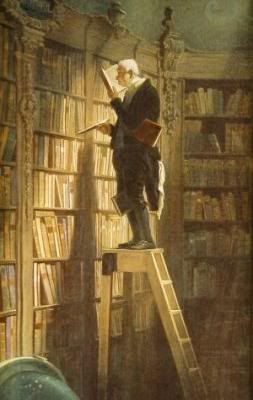After a two-month break, it's time to pick up a book to read again!
Here is the list of books for consideration for our next reading. Please email me your preferences by Sunday Oct 9, 2005. Please see below for instructions on voting.
Please do not post your votes on the blog. Please email them to me. As usual, at the end of voting the spread-sheet with everyone's votes will be made public.
1.
Till We Have Faces: A Myth Retold - by C.S. Lewis and
The Double Tongue - by William Golding.
2.
Harry Potter and the Half-Blood Prince - by J.K. Rowling
3.
Fear and Loathing in Las Vegas: A Savage Journey to the Heart of the American Dream - by Hunter Thompson.
4.
Where the Heart is - by Billie Letts
5.
I Know why the Caged Bird Sings - by Maya Angelou
6.
Man's Search for Meaning - by Viktor Frankl
7.
Life of Pi - by Yann Martel
8.
The Curious Incident of the Dog in the Night-Time - by Mark Haddon
9.
The Last True Story I'll Ever Tell: An Accidental Soldier's Account of the War in Iraq - by John Crawford
10.
She's Come Undone - by Wally Lamb
Please note: selection 1 comprises of two books. So, if this selection is chosen the two books listed would have to be read for the discussion meeting.
Voting procedure: You may choose as many selections as you want. You only have to rank your selections in the order of your preference for reading. For example, I may vote for the first, third, fifth, and the ninth books in this order: 5, 9, 1, 3. Or even better, I may vote like this: 8, 5, 3, 4, 9, 1, 3, 2, 6 - to indicate that book 8 is my most favourite and book 6 is my least favourite.
Please email me or post here if you have any questions about the voting procedure.
Please remember that voting closes on Sunday Oct. 9, 2005.
Happy voting!
